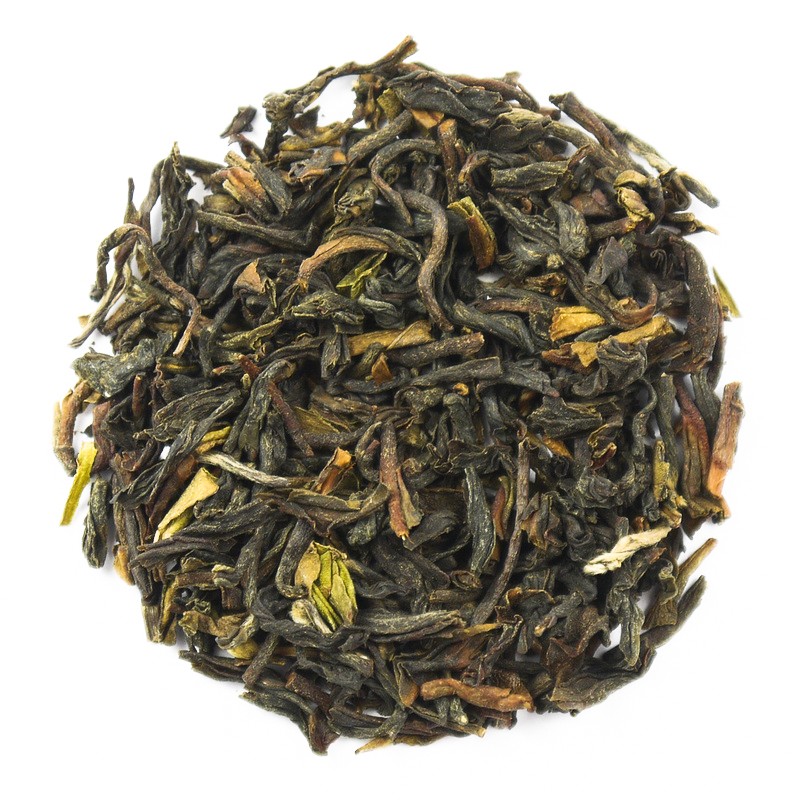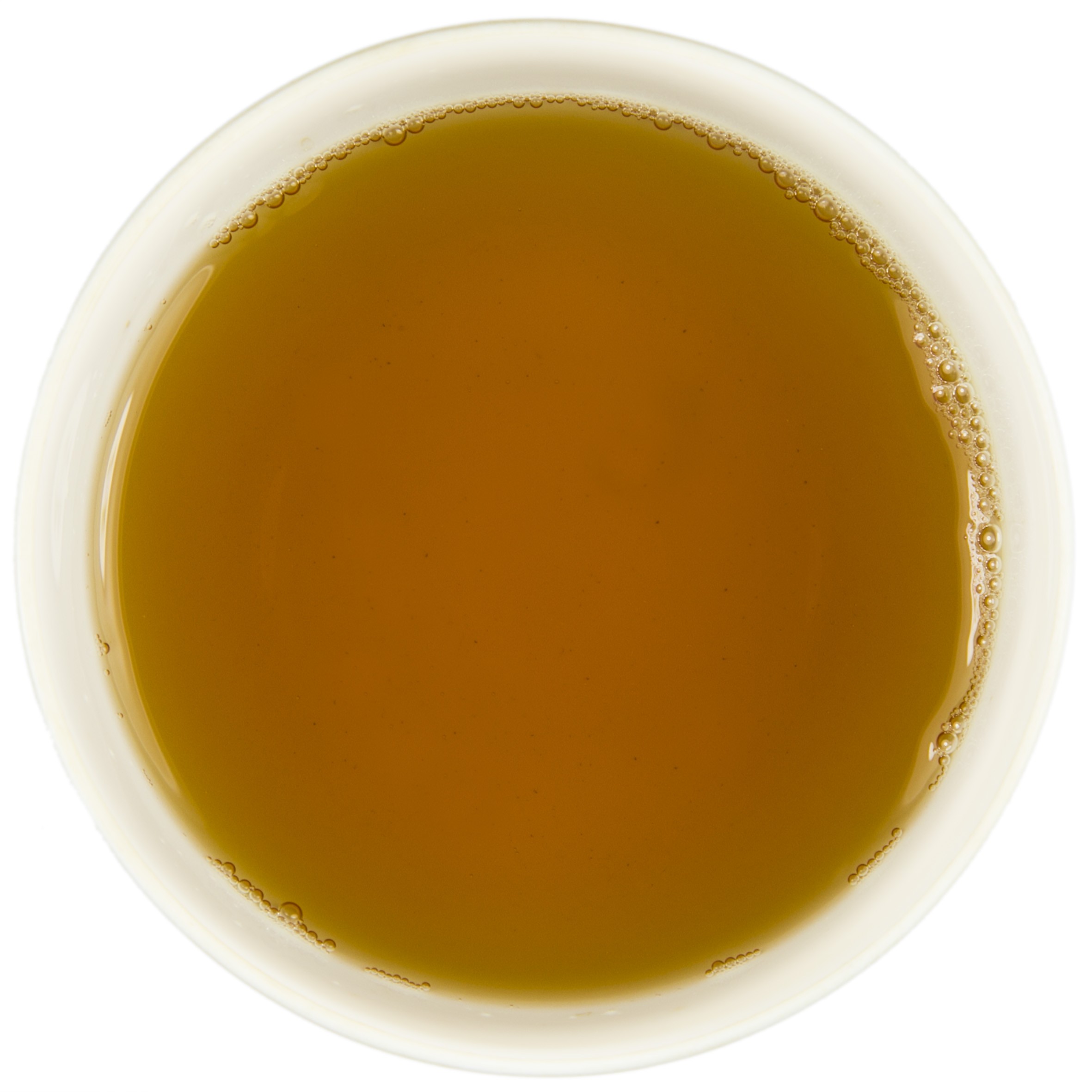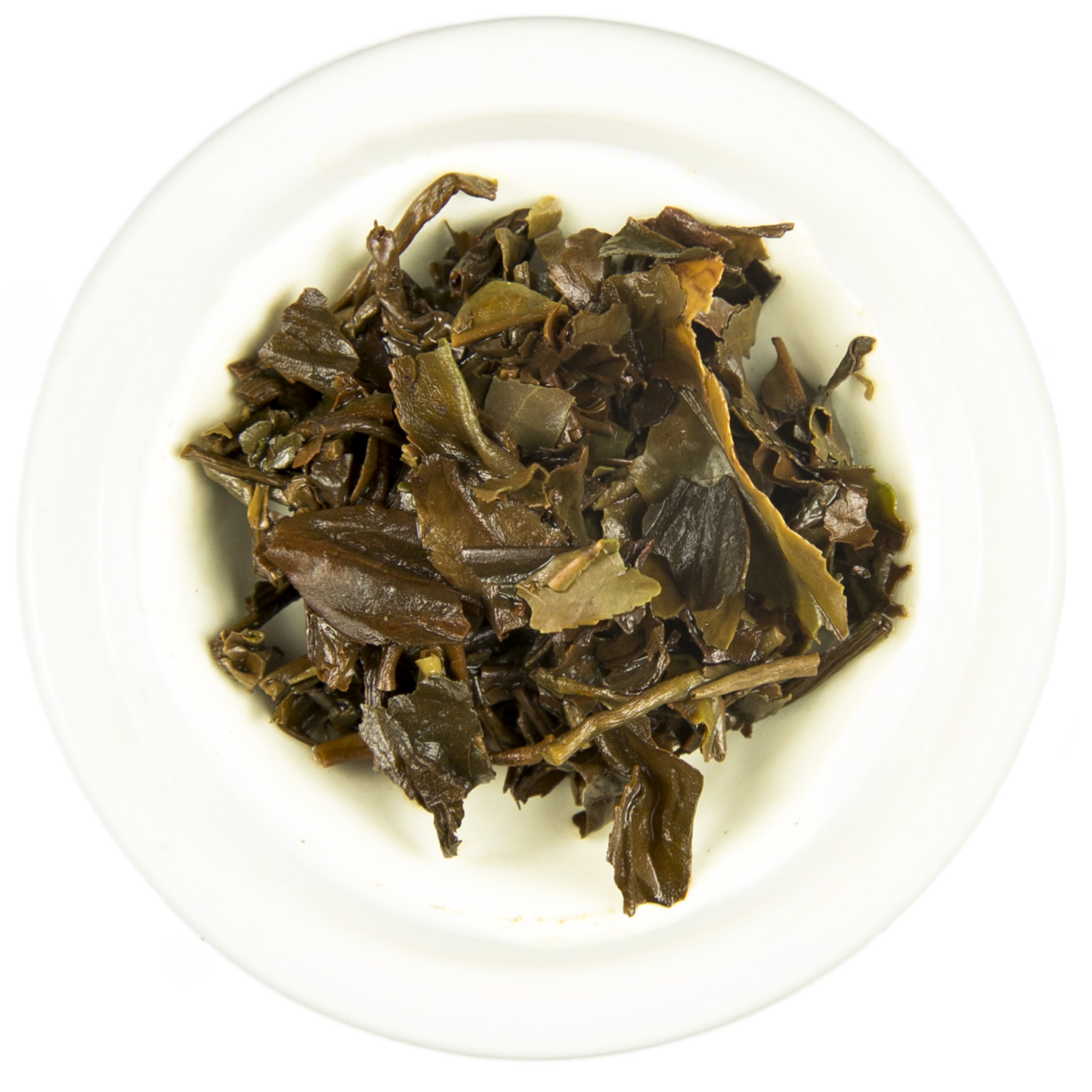Black Tea Brewing Guide

1 Teaspoon
Add 1 teaspoon per person and one for the pot.

95⁰c - 100⁰c
Boil using fresh water, at a temperature of 95⁰ - 100⁰c.

3 - 5 Mins
Steep for 3-5 minutes, depending on personal preference
About Product
-
Product Description
Darjeeling Happy Valley Tea is in the ethereal Himalayas. It shows the long-lasting legacy and pure quality of Indian Tea. It is admired for its delicate aroma and exquisite flavor. It captures the essence of the misty hills of Darjeeling. The unique terrain gives each leaf an unmatched character.
From the careful hand-picking of leaves to the meticulous art of tea processing. Each step is full of a tradition of excellence. And, a passion for making the world’s best teas. You can now take a tour of Happy Valley Tea Estate. Tea lovers can now explore its rich heritage of the estate in person.
How to Make Darjeeling Happy Valley Tea
Taste the unique flavor of Darjeeling Happy Valley Tea. Follow this step-by-step guide.
- Boil Water: Begin by boiling freshly drawn cold water. For the best taste, use spring water if available, as its purity enhances the tea’s flavour nuances.
- Warm the Teapot: Pour some of the boiled water into your teapot and swirl it around a bit before discarding. Warming the pot helps maintain the temperature during the brewing process.
- Measure the Tea: Add about one teaspoon of leaves for every cup of tea you’re preparing into the pot. If you prefer your tea stronger, you may add a little more.
- Steep the Tea: Once the water reaches a rolling boil, pour it over the tea leaves. It’s best steeped at 190°F to 200°F (87°C to 93°C). This is slightly below boiling. It keeps the tea’s delicate flavors. Allow the tea to steep for 3 to 5 minutes, depending on your taste preference for strength.
- Strain and Serve: After steeping, strain and pour the tea into cups. Traditionally, it is enjoyed without milk to appreciate its muscatel flavor. But, feel free to add a dash of milk or a teaspoon of sugar if desired.
It’s a serene morning ritual or a soothing afternoon break. Let its exquisite flavors transport you to the misty hills of Darjeeling.
Full Tasting Notes: Giving a floral and fruity aroma with hints of muscatel grape notes.
Caffeine Content: Moderate (30-50mg).
History of Happy Valley Tea Estate
The roots of Happy Valley Tea Estate date back to 1854. It is one of the oldest tea plantations in Darjeeling and a pioneer in the region’s tea history. It sprawls across about 440 acres. Cultivation areas range from 2,100 to 2,750 meters in elevation. It testifies to the vast and varied terrain ideal for tea growing.
The elevation range is key. It makes the perfect conditions for growing this tea type. The soils are fertile, and the climate is cool and moist. These factors, along with the location in the Himalayan foothills, create the conditions.
The estate’s annual production capacity is remarkable. It shows its big contribution to the tea industry. It boasts an output of up to 100,000 kilograms of tea. It focuses mainly on Orthodox Darjeeling Tea.
Over the years, Happy Valley has embraced new cultivation and processing methods. It uses organic farming practices to make its produce more sustainable and pure. Happy Valley Tea Estate is a crown jewel in the world of tea farming. It has a mix of history and legacy. It also has big production capabilities. It focuses on quality and sustainability.
Sustainable Practices at Happy Valley Tea Estate
It is committed to sustainable practices. These practices safeguard the environment and promote social responsibility in the local community. The estate uses organic farming methods. It avoids chemical pesticides and fertilisers. This preserves soil fertility and protects its workers’ health.
Additionally, at the estate, it has a rainwater harvesting system. The system collects water for irrigation and reduces reliance on groundwater sources.
Also, the estate supports local schools. It provides education, healthcare, housing, and other vital facilities. They are for its workers and their families. This shows a commitment to the well-being of its community.
In recognition of its sustainable practices, prominent organisations have certified the estate. This includes Fairtrade, Rainforest Alliance, and UTZ. These certifications assure consumers. The tea they enjoy has been made with care. The care is for both people and the planet.
In Summery
The Darjeeling Happy Valley Tea Estate embodies Indian tea cultivation. It has a rich history and focuses on quality and sustainability. And, it is dedicated to preserving its beautiful surroundings.
Its exquisite teas continue to enchant tea lovers worldwide. They make it a must-try for anyone seeking an authentic Darjeeling experience. So add Happy Valley Tea to your list of teas to try. You can savour the distinct flavors of this famous estate.
-
Delivery Information
We offer reliable delivery services through Royal Mail to ensure that your orders reach you on time.
Here are the main points you should be aware of:
- Standard UK Delivery: £3.95 excluding delivery charge.
- Delivery Times: Orders are processed and dispatched within 2-5 working days but they may take longer during busy times. It is worth noting that all our orders are packed by hand in order to maintain the quality.
- Free Delivery: We are delighted to provide free shipping for UK orders over £35*. Moreover, customers from Europe can enjoy free shipping for any purchase above €75*. Furthermore, we offer free delivery in the USA for all purchases exceeding $125*. Please note terms and conditions may apply.
- Tracking: When your package is sent you will receive a tracking number via email so as to keep tabs of its progress.
International Shipping
We do ship worldwide meaning our products can be accessed by anyone around the world.
Here are some important details:
- Delivery Times: International deliveries vary based on destination, generally taking between 7-14 working days.
- Shipping Costs: International shipping costs are calculated at checkout based on your location and weight of your order. View full delivery charges for your location.
- Customs and Import Duties: Remember customs or import duties may exist depending on regulations in your country; these charges are borne by the customer.
Returns Policy
Your satisfaction is our top priority, however if for any reasons you’re not completely happy with your purchase, simply follow our returns procedure:
- Eligibility: Items returned within 30 days of receipt must remain unopened and in their original condition.
- Process: In order to return an item contact our customer service department using your unique order number after which detailed instructions will be given concerning returning them back to us securely.
- Refunds: Our aim is to refund you within 5-7 working days upon successful reception of returned goods. The refund amount will be credited to your original payment method.
For any other Enquiries or help please contact our Customer Support Team always at your service.
-
Product Reviews

 Loose Leaf Tea
Loose Leaf Tea Pyramids
Pyramids Tea Bags
Tea Bags Africa
Africa Assam
Assam Ceylon
Ceylon Chinese
Chinese Darjeeling
Darjeeling European
European Indian
Indian Japan
Japan Nepal
Nepal South East Asia
South East Asia Ayurveda Tea
Ayurveda Tea Black Tea
Black Tea Chai Tea
Chai Tea Flowering Tea
Flowering Tea Fruit Tisanes
Fruit Tisanes Green Tea
Green Tea Herbal Tea
Herbal Tea Matcha Tea
Matcha Tea Oolong Tea
Oolong Tea Organic Tea
Organic Tea Pu erh Tea
Pu erh Tea Rooibos Tea
Rooibos Tea White Tea
White Tea Asian Coffee
Asian Coffee Caribbean Coffee
Caribbean Coffee Central American Coffee
Central American Coffee South American Coffee
South American Coffee Coffee Blends
Coffee Blends Decaffeinated Coffee
Decaffeinated Coffee Espresso Coffee
Espresso Coffee Ethically Sourced Coffee
Ethically Sourced Coffee Flavoured Coffee
Flavoured Coffee Organic Coffee
Organic Coffee Single Origin Coffee
Single Origin Coffee Chocolate 1
Chocolate 1 Chocolate 2
Chocolate 2 Chocolate 3
Chocolate 3 Chocolate 4
Chocolate 4 Chocolate 5
Chocolate 5 Chocolate 6
Chocolate 6 Chocolate 7
Chocolate 7 Chocolate 8
Chocolate 8 Chocolate 9
Chocolate 9 Loose Tea Filters
Loose Tea Filters Tea Accessories
Tea Accessories Tea Bricks
Tea Bricks Tea Caddies
Tea Caddies Tea Caddy Spoons
Tea Caddy Spoons Tea Gift Ideas
Tea Gift Ideas Tea Infusers
Tea Infusers Tea Strainers
Tea Strainers




